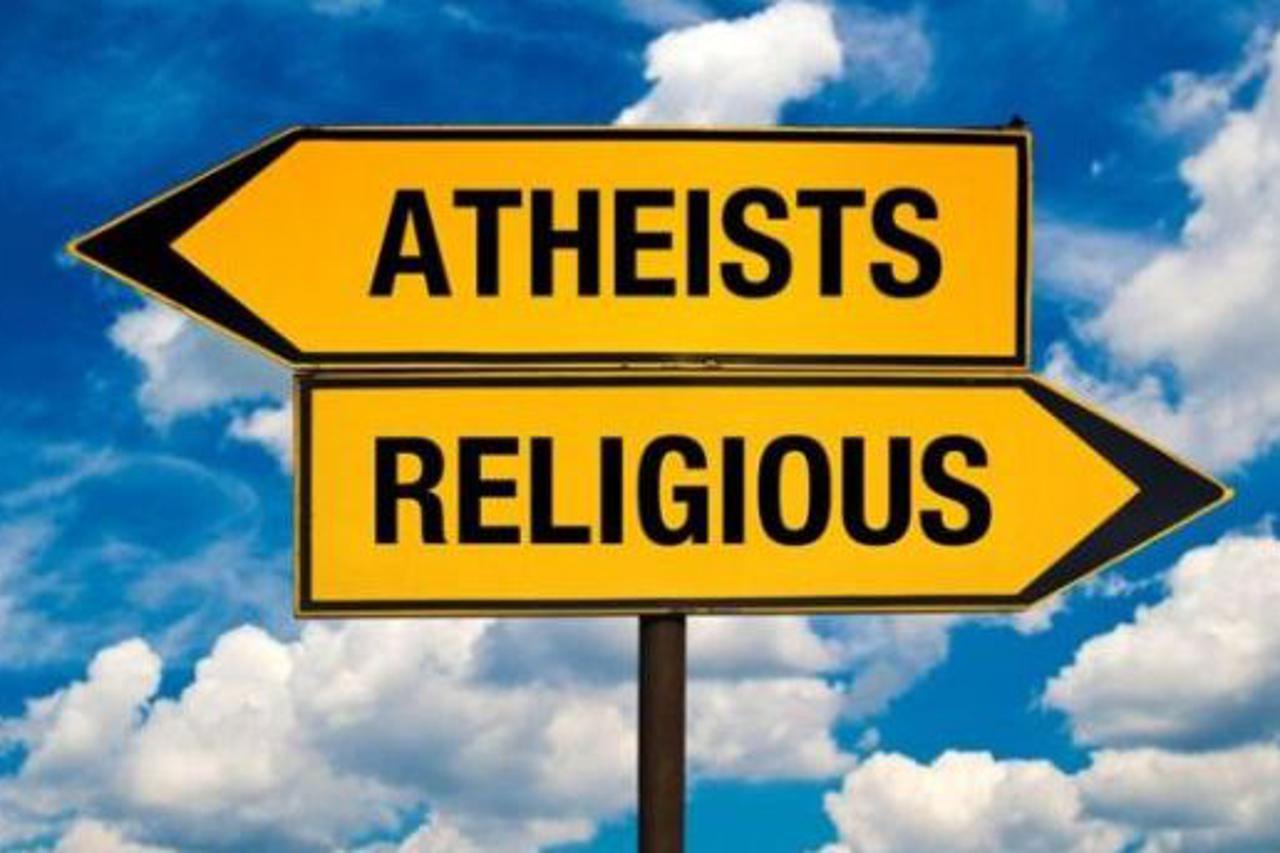Ever wondered where God’s been ghosted the most? Picture a world where ancient temples double as coffee shops and Christmas is more about family feasts than midnight mass. Welcome to the fascinating realm of the world’s most secular nations, where traditional faith has taken a backseat to modern skepticism.
From China’s staggering 91% non-religious population to Estonia’s churches-turned-concert-venues, these countries are rewriting the rules of spirituality. They’re proving that you can preserve cultural heritage while embracing secular thinking – and maybe even throwing an ancient festival or two into the mix, minus the religious undertones.
China – The World’s Largest Atheist Nation
At the forefront of global secularism stands China, boasting the highest proportion of atheists worldwide. With a staggering 91% of its population identifying as atheist or non-religious – and 67% being convinced atheists – the nation represents a unique case study in widespread secular thought.
This massive shift away from traditional religious beliefs isn’t just a recent phenomenon. China’s secular mindset has deep roots in Confucian philosophy, which historically emphasized practical ethics over supernatural beliefs. The Communist Party’s official promotion of atheism since 1949 has further cemented this trajectory.
Today’s modern China showcases how rapid economic development and urbanization can accelerate secular attitudes. In major cities like Beijing and Shanghai, you’ll find a population far more concerned with material progress than spiritual matters.
Czech Republic – Europe’s Secular Heartland
Unlike their Central and Eastern European neighbors, the Czech Republic stands out as Europe’s most religiously skeptical nation, where a whopping 72% of adults don’t identify with any faith tradition. What’s even more striking? A quarter of Czechs proudly embrace the atheist label – making them true champions of secular thinking in Central Europe.
This isn’t just a modern trend, either. The Czechs have been blazing their own path away from organized religion for generations. Today’s numbers tell a fascinating story: 84% support legal abortion, and 65% back same-sex marriage – making them one of Europe’s most secular countries.
But here’s the kicker – while most Czechs might skip Sunday service (55% never attend religious services), they haven’t completely abandoned supernatural thinking. A surprising 65% still believe in at least one mystical concept, from fate to souls. Talk about keeping things interesting!
Japan – Where Ancient Meets Atheist
In the land of cherry blossoms and bullet trains, Japan presents a fascinating paradox of spirituality and secularism. With 64-65% of its population identifying as atheist or agnostic, Japan stands as one of the most secular countries in Asia, representing over 81 million non-believers.
What makes Japan unique is how seamlessly it blends traditional spiritual customs with modern secular life. You’ll find Japanese people participating in Shinto ceremonies or Buddhist rituals while maintaining fundamentally non-religious worldviews – a phenomenon often called “practical atheism.”
This secular shift gained momentum during Japan’s post-war economic miracle, when rapid industrialization and modernization reshaped social values. Today’s Japanese society embodies this duality perfectly – where ancient shrines stand in the shadows of towering skyscrapers, and most citizens approach religion as cultural tradition rather than spiritual truth.
Sweden – The Progressive Secular Pioneer
Sweden stands as a beacon of secular progress, where an astounding 46-85% of the population identifies as atheist or agnostic. That’s roughly 4-7.6 million Swedes who’ve traded traditional faith for a more rationalist worldview.
The shift from Sweden’s Lutheran roots to most secular countries in 2024 didn’t happen overnight. Decades of progressive social policies, comprehensive education, and a robust welfare system have shaped a society where religious belief takes a backseat to practical humanism.
Modern Swedish culture perfectly embodies this secular spirit. While historic churches dot the landscape, they’re more likely to host concerts than congregations. You’ll find Swedes celebrating traditional Christian holidays like Christmas and Easter, but with a distinctly secular twist – focusing on family gatherings and cultural traditions rather than religious observance.
Estonia – The Baltic Beacon of Non-Belief
Estonia stands out as a fascinating case in Europe’s secular landscape, where the most secular countries show that 49% of the population claims no religious belief, with 11% specifically identifying as atheists. In this tiny Baltic nation, you’ll find churches transformed into concert venues and medieval monasteries serving as hip cafes – a perfect metaphor for the country’s evolution from religious tradition to modern secular thinking.
The roots of Estonian secularism run deep, shaped by centuries of foreign religious influence and decades of Soviet-era atheism. But unlike other post-Soviet states that embraced religion after independence, Estonians doubled down on their secular identity. Today’s Estonia ranks consistently among the worst countries for atheists, boasting some of Europe’s most progressive social policies.
But here’s what makes Estonia truly unique – while most Estonians might skip Sunday services, they’ve managed to preserve their rich cultural heritage without the religious undertones. It’s a place where ancient pagan festivals coexist with cutting-edge digital innovation, creating a distinctly Estonian brand of secular society.
Hong Kong – Where East Meets Secular West
In the bustling metropolis of Hong Kong, secularism thrives amid the city’s iconic skyline, where 66% of residents identify as atheists or non-believers. This former British colony has cultivated a unique secular identity, blending Eastern philosophical traditions with top 50 atheist countries with Western-style modernization.
Hong Kong’s secular mindset isn’t just about rejecting religious beliefs – it’s woven into the fabric of daily life. While traditional temples still dot the urban landscape, they’re more likely to see tourists than worshippers. Nearly 55% of Hong Kongers identify as non-religious, preferring pragmatic approaches to life over spiritual ones.
What makes Hong Kong’s secular story fascinating is how it emerged from the intersection of Chinese cultural heritage and British colonial influence. Today, you’ll find professionals rushing past ancient temples to reach gleaming office towers – a perfect metaphor for Hong Kong’s secular evolution in our modern world.
United Kingdom – Where Traditional Faith Meets Modern Skepticism
The United Kingdom has emerged as a stronghold of secular thinking, where 31-44% of Brits – that’s roughly 18.7-26.5 million people – identify as atheist or agnostic. This dramatic shift from the nation’s deeply Christian roots tells a fascinating story of cultural evolution.
In today’s British society, you’re more likely to find historic cathedrals serving as tourist attractions than packed Sunday services. While secular nations in 2022 show 69% of Brits now identify as non-religious, they haven’t completely abandoned their cultural ties to Christianity – just ask anyone about their Christmas pudding traditions!
The UK’s transformation into a secular society hasn’t happened in isolation. Immigration, multiculturalism, and rapid urbanization have all played their part in reshaping British attitudes toward religion. From bustling London boroughs to quiet Scottish highlands, you’ll find a uniquely British brand of secularism that manages to honor tradition while embracing modern skepticism.
Belgium – Where Secular Values Reign Supreme
In the heart of Europe, Belgium stands as a testament to successful secularization, with 42-43% of its population – approximately 4.3-4.4 million people – identifying as atheist or agnostic. Despite its deep Catholic roots, modern Belgium has evolved into one of the safest countries for atheists, earning its spot near the top of international secular rankings.
This transformation didn’t happen overnight. As one of the continent’s most progressive nations, Belgium has consistently ranked among the world’s most secular countries. Here, you’ll find historic Gothic cathedrals repurposed as cultural centers and museums – a perfect metaphor for the country’s journey from religious tradition to secular modernity.
Belgian secularism comes with a distinctly pragmatic flavor. While religious freedom is constitutionally protected, public life operates firmly on secular principles. From pioneering euthanasia laws to same-sex marriage rights, Belgium continues to lead the charge in progressive, secular governance.
Australia – The Land Down Under Secularism
Down under, Australia has emerged as a secular powerhouse, where roughly 24-25% of the population – that’s nearly 5 million Aussies – have embraced atheism or agnosticism. What started as a British colony steeped in Anglican tradition has bloomed into one of the Pacific’s most religiously skeptical nations.
In today’s multicultural Australia, you’ll find former churches converted into trendy cafes and art galleries – a perfect snapshot of the country’s secular evolution. From bustling Sydney to laid-back Perth, about 70% of Australians rarely darken a church door except for weddings or funerals.
But here’s what makes Aussie secularism unique: it comes with a distinctly relaxed attitude. While most Australians might skip Sunday services, they’ve maintained their characteristic “live and let live” philosophy, creating a secular society that’s both progressive and remarkably chill about personal beliefs.
South Korea – Where Tech Meets Secular Thinking
In the land of K-pop and cutting-edge technology, South Korea has undergone a remarkable secular transformation. With top twenty atheist countries showing 30-52% of its population – roughly 14.5-25.2 million people – identifying as atheist or agnostic, modern South Korea stands as a testament to how rapid development can reshape religious attitudes.
The nation’s journey from traditional Buddhist and Confucian roots to secular modernity mirrors its dramatic economic rise. In bustling Seoul’s neon-lit streets, you’ll find ancient temples sharing space with sleek tech campuses, perfectly capturing Korea’s secular evolution.
What makes Korean secularism fascinating is its practical approach. While many Koreans maintain cultural ties to traditional practices, they approach them more as cultural heritage than religious doctrine. It’s a place where age-old ancestral rites coexist with ultramodern digital lifestyles, creating a uniquely Korean flavor of secular society.
FAQ: Understanding Global Secularism and Atheism
What’s the difference between secularism and atheism?
While they often overlap, secularism and atheism aren’t identical twins. Secularism is like a political philosophy that keeps religion and state separate – think France’s famous “laïcité” principle. Atheism, on the other hand, is simply the absence of belief in any gods. You can be secular without being atheist, just as many Japanese people practice traditional rituals while maintaining non-religious worldviews.
What drives high atheist populations?
Several ingredients go into this secular soup. Historical factors like China’s Cultural Revolution or Estonia’s Soviet past played huge roles. But it’s not just history – high education levels (hello, Scandinavian countries!), urbanization, and economic development often correlate with increased secular thinking. Plus, some cultures, like China’s Confucian tradition, already emphasized practical ethics over supernatural beliefs.
How does secularism shape society?
Think of secularism as society’s great equalizer. In places like Sweden and Denmark, it’s helped forge some of the world’s most progressive policies. You’ll typically find better gender equality, LGBTQ+ rights, and science-based education in secular nations. But it’s not all sunshine – some argue it can weaken traditional community bonds that religions once provided.
Which countries are leading the secular charge?
The usual suspects include Scandinavian nations (Sweden, Denmark, Norway) waving the secular flag high. Estonia leads the Baltic pack, while Asian giants like Japan and South Korea balance traditional culture with modern secular values. Even France, with its strict separation of church and state, makes the list despite its Catholic heritage.
What about Albania’s unique secular story?
Albania’s journey to secularism took a different path – it became the world’s first atheist country in 1967 under communist rule. The government’s heavy-handed approach included closing religious institutions and banning religious practices. Today’s Albania has embraced religious freedom while maintaining its largely secular society, proving there’s more than one road to secular thinking.
Charting the Future of Global Secularism
As we’ve journeyed through these bastions of secular thinking, one thing becomes crystal clear: the rise of atheism isn’t just a passing trend – it’s reshaping our global cultural landscape. From Asia’s tech-driven pragmatism to Europe’s progressive policies, each country adds its own unique flavor to the secular feast.
What’s next for these godless pioneers? If current trends hold, we might see even more nations joining their ranks. But perhaps the most intriguing part isn’t just the absence of religious belief – it’s how these societies are crafting new ways to find meaning, build communities, and celebrate life’s big moments without traditional faith at the center.














